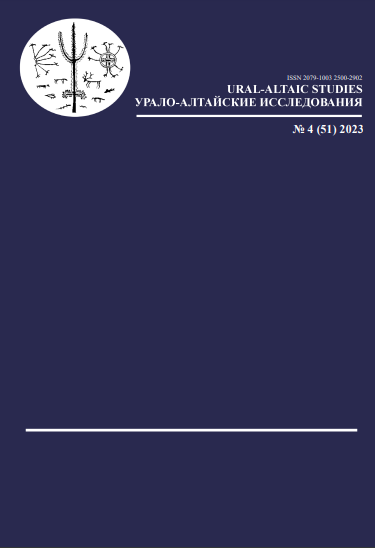Из старой диаспоры в новую: к вопросу о сохранности языка и культуры башкирских марийцев (на материале социолингвистического обследования в марийской диаспоре московского региона)
From the old diaspora to the new one: On Bashkir Maris’ language and culture maintenance (Results of a sociolinguistic survey in the Moscow region Mari diaspora)
Author(s): Marina V. KutsaevaSubject(s): Language studies, Education, Sociolinguistics, Finno-Ugrian studies, Cultural Anthropology / Ethnology, Culture and social structure , Sociology of Culture
Published by: Институт языкознания Российской академии наук
Keywords: Mari language; ethnic language; internal diaspora; Moscow region; Bashkir Maris; language policy in education; family language policy; language practices; language ideologies;
Summary/Abstract: The present work makes part in a series of articles devoted to linguistic biographies of Moscow region Mari diaspora representatives, in this case natives of Bashkortostan in the sample. The Mari internal diaspora in the Moscow region has been formed relatively recently and can be considered a new diaspora, whereas the areas of Mari settlement in the Urals and Kama region, formed during the XVI-XVIII centuries, are old diasporas, and Mari people live compactly there. Language is one of the key markers of ethnic identity in the sample, and its maintenance correlates with the degree of preservation of the borders of the ethnic group. In this regard, it is of interest to analyze the dynamics of the functioning of the ethnic language following the migration of speakers of the idiom from the old diaspora to the new one. The first part of the work presents the linguistic biographies of 18 respondents, natives of the Republic of Bashkortostan: languages of intra-family communication, preschool education, school education (language of instruction or subject of education), further education; channels for the study of the Russian and Mari languages by respondents; a comparative analysis of the present results with the linguistic biographies of the natives of the Republic of Mari El in the sample. In the second part of the work, the problem of the actual use of the Mari idiom by respondents in the Moscow region is studied: domains of use, the respondents’ speech practices and language ideologies, preservation of the idiom and the mechanism of intergenerational language transmission in the sample. Particular attention is given to the language in culture, preservation of the Bashkir Mari ethnic culture and maintenance of traditional Mari beliefs, the guardians of which they consider themselves to be, in the conditions of the group's residence in the Moscow region.
Journal: Урало-алтайские исследования
- Issue Year: 2023
- Issue No: 04 (51)
- Page Range: 54-79
- Page Count: 26
- Language: Russian

